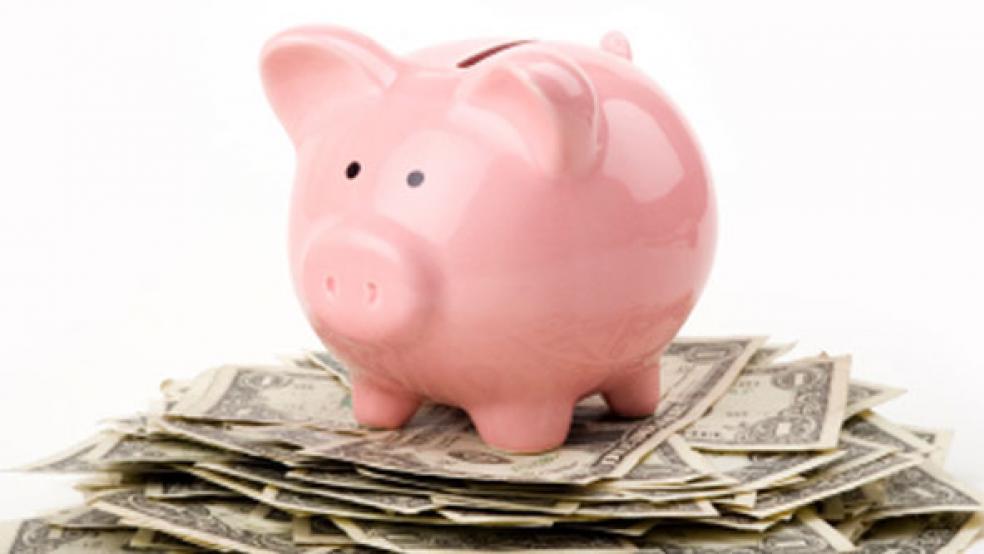In the first months of the pandemic shutdown, millions of Americans waited to receive their unemployment insurance, facing delays and glitches following historic application levels. Even when government programs exist, personal savings is necessary to help bridge gaps when those systems inevitably fall short.
To make saving a little easier, a new idea is gaining popularity: Universal Savings Accounts (USAs). These savings accounts would help every American save for a rainy day, to start a business or to grow their family.
The current system for personal savings is broken and in need of a new option. It tells young and lower-income Americans not to save or invest unless you are ready to save for retirement or other government-approved goals.
The existing 401(k) and 529 saving accounts are designed for Americans who are wealthy enough to save for specific purposes and financially secure enough to know that their plans won’t change. USAs provide another option, allowing families to save for the unknowns in life, without strings attached or being penalized by the tax code.
Instead of juggling multiple savings accounts, specific to retirement, education, health care or child care, a USA would be a new catch-all account that can be used for anything.
So how would these accounts work?
Individuals would be allowed to contribute up to $10,000 in after-tax earnings to their USA each year. Similar to retirement accounts, the funds could be held in cash, put into interest-bearing bonds or invested in the stock market. The savings could be used at any time for any purpose.
All withdrawals would be excluded from taxable income, which means all accrued earnings would be tax-free. No taxes on the interest, no taxes on the capital gains and no taxes on the dividends.
Such a single, simple, universal savings account would make existing savings incentives more readily available to younger, lower-income and self-employed workers who often need the savings most.
Waiting for unemployment benefits, gig-economy workers, such as Uber drivers or TaskRabbit service providers, who are usually not eligible for unemployment, faced some of the longest delays as a newly created, but temporary, system was slow to set up and start working.
Complicated rules and high penalties for misusing government-earmarked savings discourage the use of the existing system among many gig-workers. They tend to be younger, have lower income and lack access to employer-sponsored retirement or other savings plans.
The existing saving accounts fail to meet the needs of these Americans because they carry strict penalties when workers use their savings in non-approved ways. Low-income savers, for example, are about 30% more likely to face tax penalties for improperly withdrawing their money from a tax-preferred saving account during a personal financial crisis.
Part of the problem is that current law tries to influence people’s behavior rather than allowing them to save, or otherwise do as they wish, with their own money.
Congress implicitly recognizes the failure of single-purpose savings accounts after almost every major natural disaster, by allowing affected Americans to draw on their retirement savings penalty-free.
In the March coronavirus relief package, Congress suspended restrictions on using retirement funds for pandemic emergencies. They also waived requirements that would have forced some retirees to liquidate their investments at the bottom of the stock market crash.
These were sensible changes. But by creating a universal savings account, Congress could help Americans build a flexible, self-directed rainy day fund, instead of addressing each crisis with an exception to typically rigid rules.
Similar accounts have succeeded in promoting saving around the world. The United Kingdom and Canada pioneered the model of simple, flexible savings accounts to help more people save for their own priorities.
Forty-three percent of all households in the U.K. have saved money in these accounts, and half of those households are low-income savers earning less than $26,000. Similarly, in Canada, a majority of accounts are owned by lower-income savers, and young people take the most advantage of these programs with those in their 20s contributing at some of the highest rates.
Right now, Americans are also saving more on their own. In April, people saved one-third of their after-tax income, up from about 8% in normal times. While much of this increased saving is people only delaying their spending for fear of leaving their homes (or being told they shouldn’t leave), people do tend to save more after economic recessions.
Congress could help Americans build a more secure future by allowing them to move some of their savings into a USA. Whether it’s a rainy day fund or savings for a sunny beach vacation, we should be taxing family savings less so Americans can save more.
Adam N. Michel is a Senior Policy Analyst in the Grover M. Hermann Center for the Federal Budget at The Heritage Foundation and author of Center for Growth and Opportunity paper Universal Savings Accounts.


